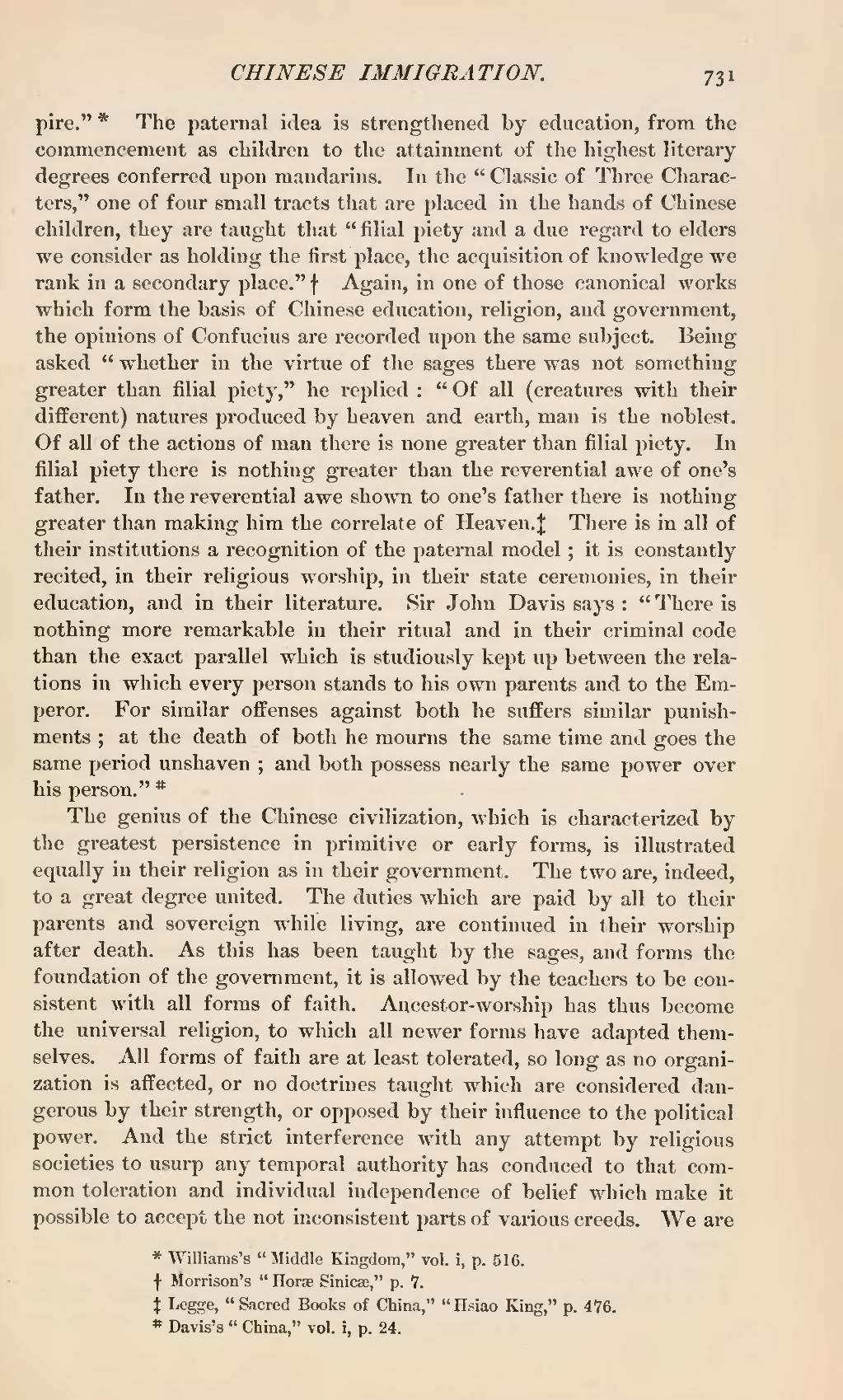pire."[1] The paternal idea is strengthened by education, from the commencement as children to the attainment of the highest literary degrees conferred upon mandarins. In the "Classic of Three Characters," one of four small tracts that are placed in the hands of Chinese children, they are taught that "filial piety and a due regard to elders we consider as holding the first place, the acquisition of knowledge we rank in a secondary place."[2] Again, in one of those canonical works which form the basis of Chinese education, religion, and government, the opinions of Confucius are recorded upon the same subject. Being asked "whether in the virtue of the sages there was not something greater than filial piety," he replied: "Of all (creatures with their different) natures produced by heaven and earth, man is the noblest. Of all of the actions of man there is none greater than filial piety. In filial piety there is nothing greater than the reverential awe of one's father. In the reverential awe shown to one's father there is nothing greater than making him the correlate of Heaven.[3] There is in all of their institutions a recognition of the paternal model; it is constantly recited, in their religious worship, in their state ceremonies, in their education, and in their literature. Sir John Davis says: "There is nothing more remarkable in their ritual and in their criminal code than the exact parallel which is studiously kept up between the relations in which every person stands to his own parents and to the Emperor. For similar offenses against both he suffers similar punishments; at the death of both he mourns the same time and goes the same period unshaven; and both possess nearly the same power over his person."[4]
The genius of the Chinese civilization, which is characterized by the greatest persistence in primitive or early forms, is illustrated equally in their religion as in their government. The two are, indeed, to a great degree united. The duties which are paid by all to their parents and sovereign while living, are continued in their worship after death. As this has been taught by the sages, and forms the foundation of the government, it is allowed by the teachers to be consistent with all forms of faith. Ancestor-worship has thus become the universal religion, to which all newer forms have adapted themselves. All forms of faith are at least tolerated, so long as no organization is affected, or no doctrines taught which are considered dangerous by their strength, or opposed by their influence to the political power. And the strict interference with any attempt by religious societies to usurp any temporal authority has conduced to that common toleration and individual independence of belief which make it possible to accept the not inconsistent parts of various creeds. We are
